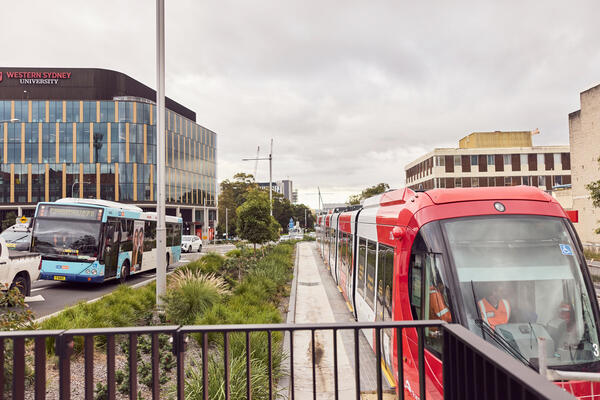
Operational responses to transport inequity
A collaboration with the Queensland University of Technology (QUT) and Transport for NSW (TfNSW) to identify ways we could address transport inequity in Western Sydney and outer-metro and regional areas using short-term travel demand management and behaviour change.
Background
Inclusive and accessible transport is integral to enabling participation of all members of the community. Transport disadvantage can come in many forms, including inequitable access, cost and distribution of transport modes and services. TfNSW is looking to better understand what can be done from a short-term operational perspective to address transport inequity, particularly in Western Sydney and outer-metro and regional areas. It is particularly interested in looking at the problem of car dependency and encouraging mode shift to active and public transport.
With the help of QUT, this research project will consider global literature on transport inequity, to systematically identify transport equity factors which are relevant to travellers’ transport opportunity, transport disadvantage and mode shift. These factors will be mapped to potential initiatives and a unique benefits appraisal method will be used to understand potential impacts on specific communities.
The transport system represents complex interactions among individuals, communities, infrastructures, locations, and stakeholders. Hence, the nature of the transport equity factors is likely to be multi-dimensional. In fact, the fundamental conditions of fairness in transport (impartiality and consistency) should be judged against a wide range of transport equity factors.
Thus, a systematic analysis of these transport equity factors is required to ensure intervention efficacy to influence fairness for all.
Objectives
The research aims to better understand how travel demand management and behaviour change initiatives can be used to address the nexus of transport inequity issues affecting Western Sydney and outer-metro and regional areas with a particular focus on car dependency and mode shift.
The research will:
- identify direct operational levers and short-term initiatives to promote mode shift, reduce car dependency, and address social equity and accessibility issues
- assess and quantify the benefits of identified operational levers and short-term initiatives in reducing social equity gap while also reducing car dependency and creating mode shift to public and active transport.
A part of this includes an extensive literature search to systematically identify transport equity factors that are relevant to travellers’ transport opportunities, transport disadvantages and modal shift. These transport equity factors will be mapped based on:
- capability (travellers’ psychological and physical abilities to engage in travel activities),
- opportunity (physical and social environment that allows travellers to perform travel activities), and
- motivation (reflective and automatic processes that motivate travellers to engage in travel activities).
Further updates will be provided as this project progresses.
This research is being delivered in partnership with iMOVE CRC and supported by the Cooperative Research Centres program, an Australian Government initiative.
